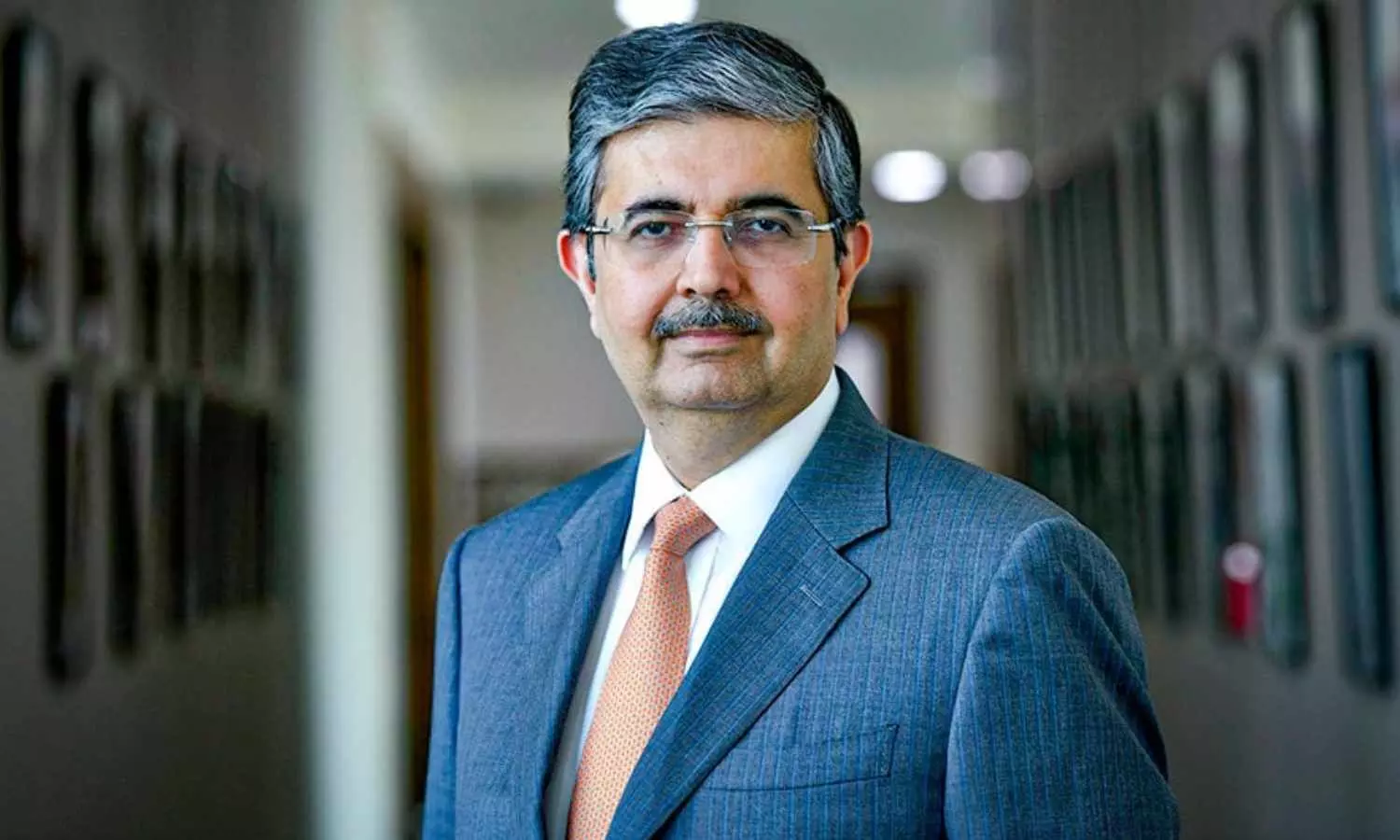Uday Kotak on Equity Valuations, FII Outflows and Many More. All Details Here
Uday Kotak, founder of Kotak Mahindra Bank said that foreign portfolio investors (FPIs) have an upper edge as domestic retail investors are pouring their money into the stock market.
Uday Kotak on Equity Valuations, FII Outflows and Many More. All Details Here

Raising concerns about the growing FII outflows from the Indian equities market, Uday Kotak, founder of Kotak Mahindra Bank said that foreign portfolio investors (FPIs) have an upper edge as domestic retail investors are pouring their money into the stock market. Kotak was speaking at the Chasing Growth 2025 investor event.
He also pointed out that overvaluation in Indian equities has led to a surge in foreign investors pulling out their funds.
He reiterated that Indian retail investors are funneling their money into equities on a daily basis, which is thereby boosting domestic institutional flows. On the other hand, FIIs are using this phenomenon as an opportunity to book profits and park their money in other global markets.
"Should we continue encouraging retail investors to keep buying? Retail investors in India are funnelling money into equities daily, contributing to domestic institutional flows. Money from individuals from Lucknow to Coimbatore is flowing to Boston and Tokyo," he said.
He also highlighted that a strong US dollar is pulling capital out of emerging markets, including India as U.S. Treasury yields are now above 4.5%.
Giving an overview of India’s external account, Kotak noted that foreign portfolio investment (FPI) stands at $800 billion, while foreign direct investment (FDI) and external commercial borrowing are close to $1 trillion and $700 billion respectively. This in turn brings total repatriable capital to $2.5 trillion whereas forex reserves, after taking into account the Reserve Bank of India's (RBI) forward short positions, comes to $560 billion.
The risk of capital outflows remains high, warned Kotak. Though, a $2.5 trillion in repatriable capital may not leave India, even a 5% exit could result in a loss of $100 billion. If this happens, India could face two possible outcomes—either the RBI would have to use its reserves, or the rupee would weaken.
He also raised concerns about declining entrepreneurial spirit among younger business families.
He said, “What concerns me is that many in this generation are taking the easy way out, especially in the post-Covid world. They claim to be managing family offices and investments, trading in the stock market, allocating funds to mutual funds, and treating it as a full-time job.”
He also questioned why individuals in their mid-30s or 40s are not contributing more directly to the economy.
He added, “I would love to see this generation be hungry for success and build operational businesses. Even today, I firmly believe that the next generation must work hard and create businesses rather than becoming financial investors too early in life.”

